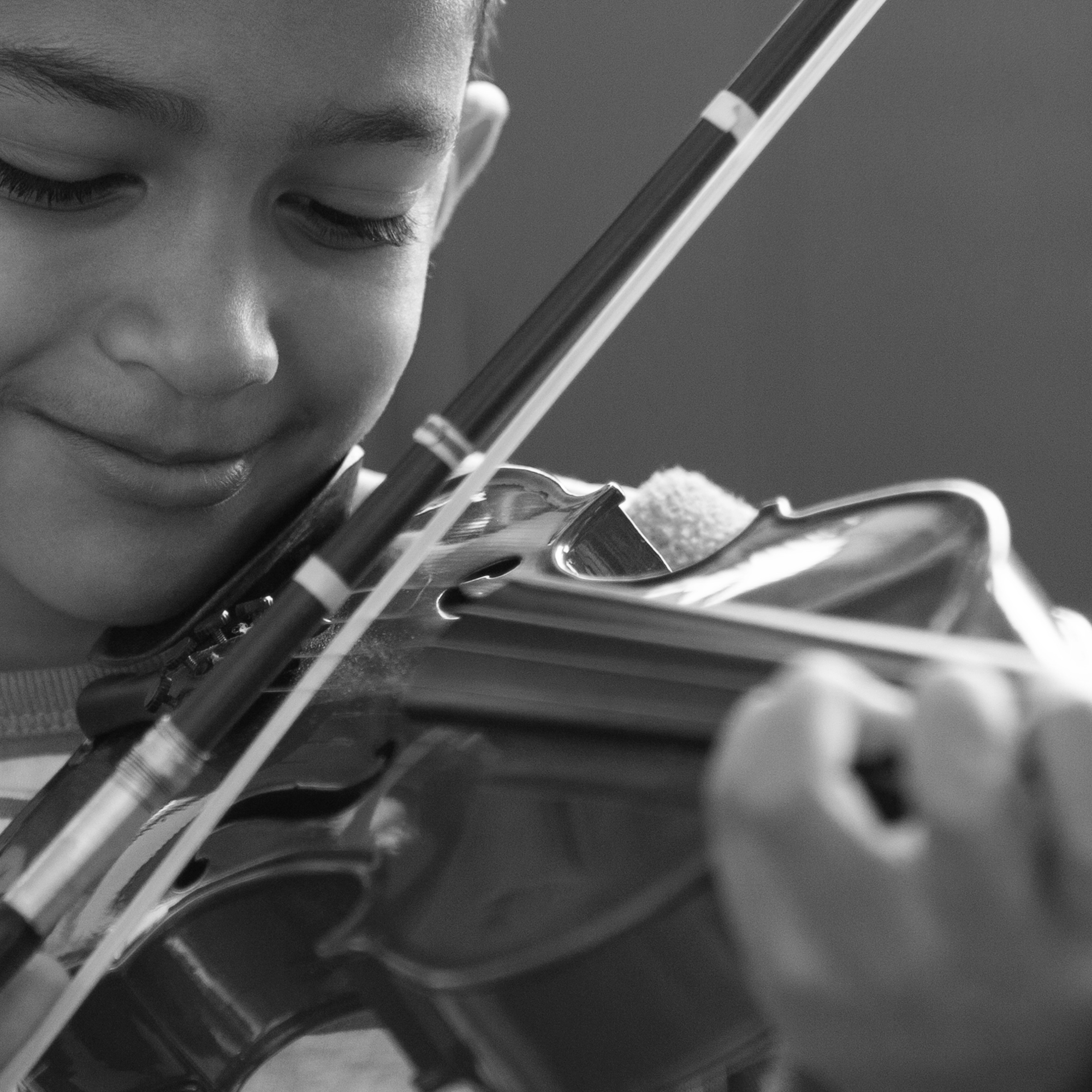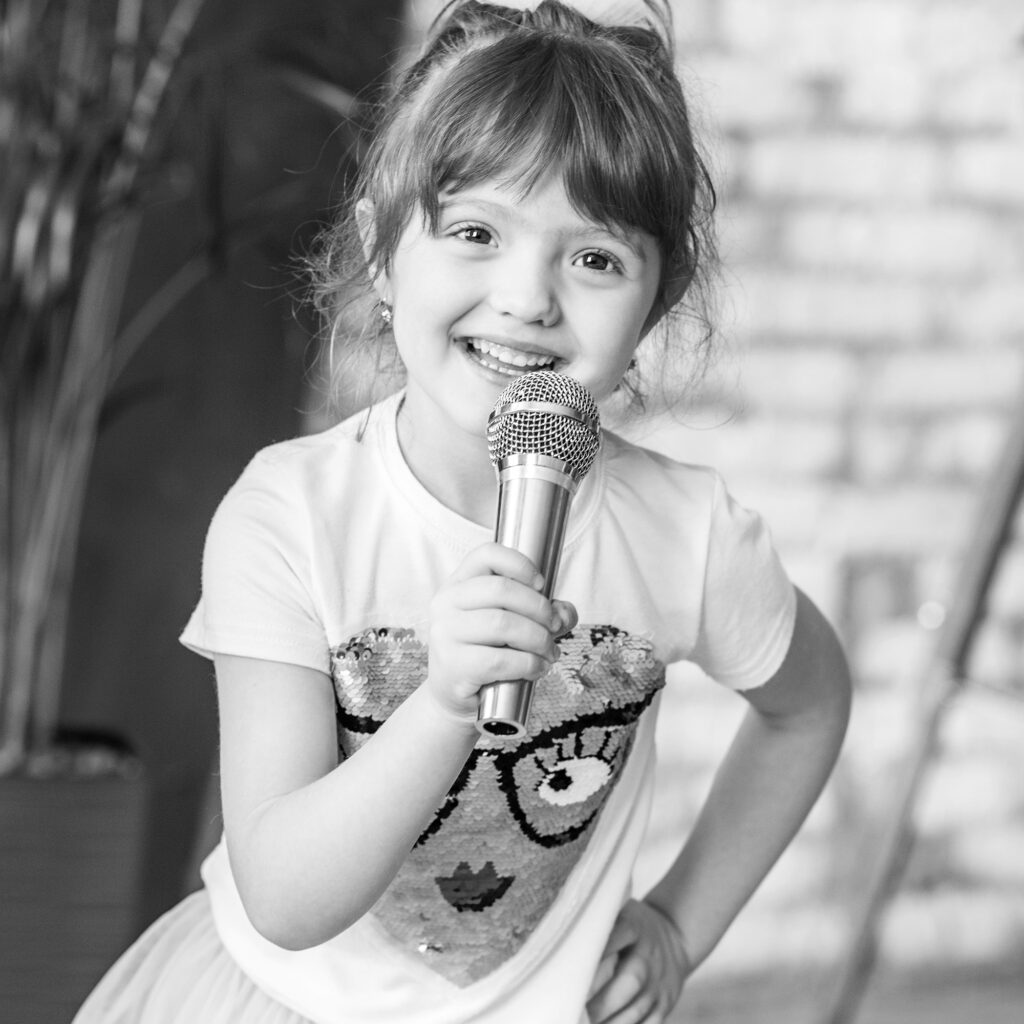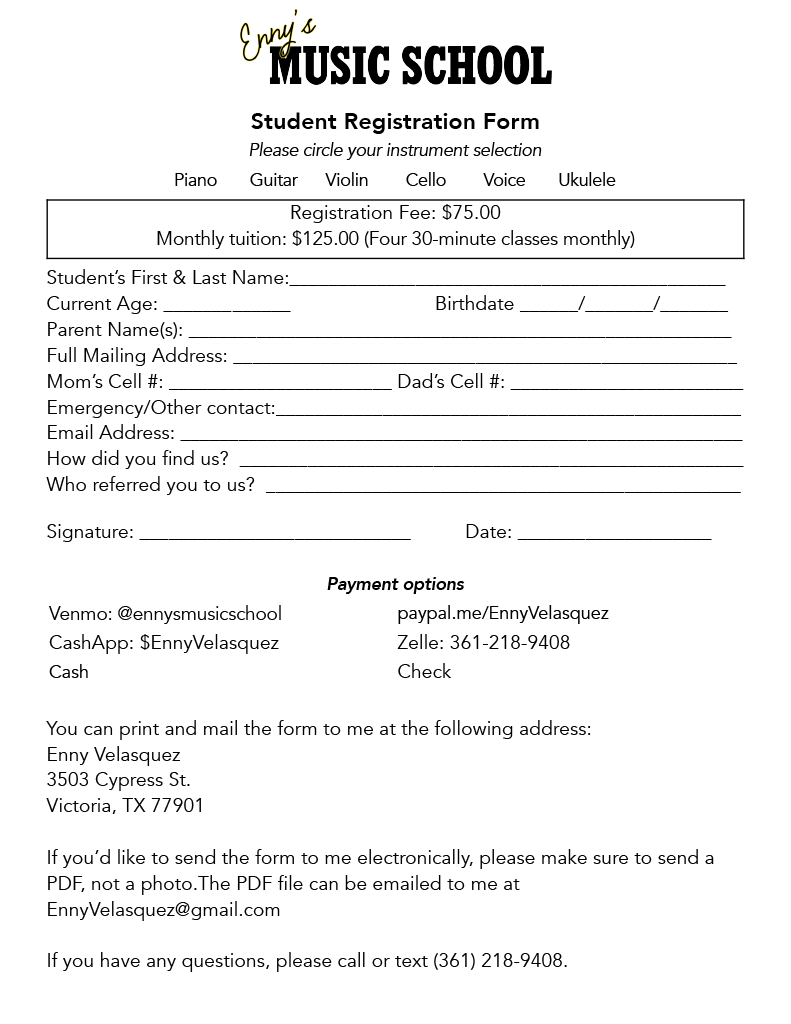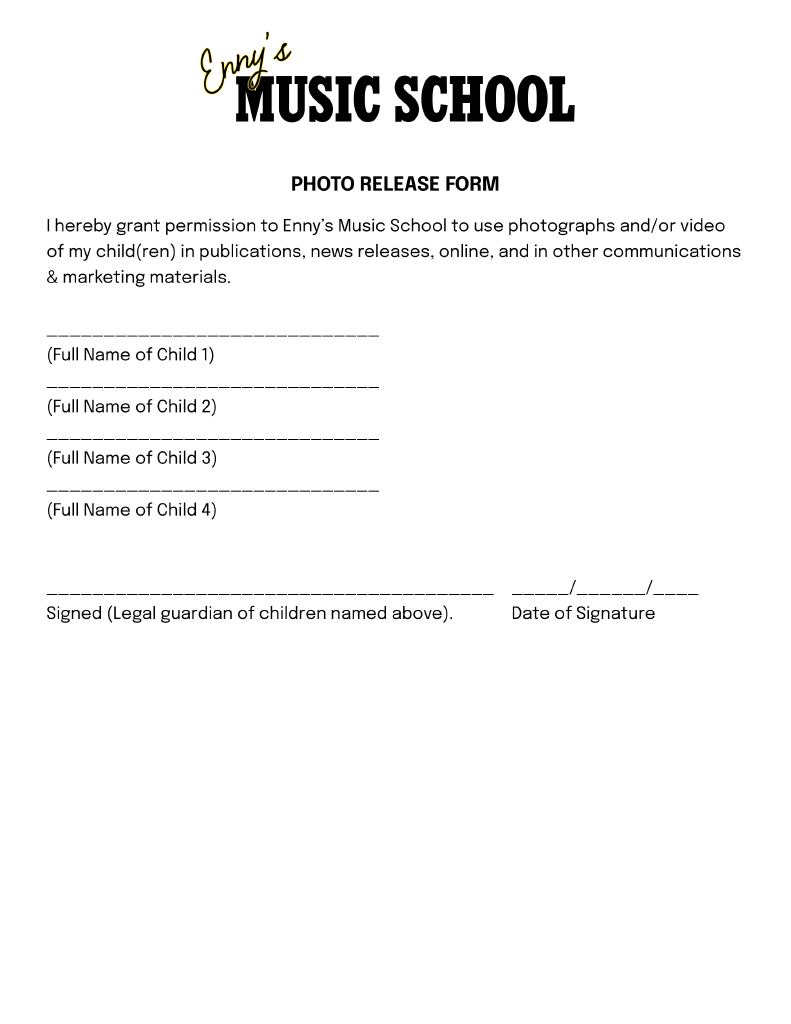What Instrument(s) Should My Child Play?
“Music gives wings to the Mind,
Flight to the imagination,
and life to everything.” – Plato
Piano Lessons – The piano is a versatile instrument that provides a solid foundation in music. It allows children to easily visualize and understand musical concepts, such as scales, chords, and harmony. The tactile and visual nature of the piano makes it easier for young children to start learning music, and it also helps develop coordination and hand strength.
Best for: Children who enjoy using both hands independently and have an interest in music theory or composition.
Violin Lessons – The violin requires fine motor skills and a good ear for pitch, making it ideal for children who are diligent and enjoy focusing on precision. It also offers opportunities to join orchestras or ensembles, which can be a motivating factor for some children.
Best for: Children who enjoy a challenge and are patient and detail-oriented.
Cello Lessons – The cello offers a rich, warm tone and can be very rewarding to play. Like the violin, it requires fine motor skills, but it is larger and may be better suited for children who are comfortable handling a bigger instrument. Cello players are often in demand for ensembles, providing social opportunities.
Best for: Children who prefer deeper sounds and have the patience for learning a larger string instrument.
Guitar Lessons – The guitar is an instrument used in many genres, from classical to rock. It allows children to play chords and melodies, making it suitable for those who want to accompany themselves or play in bands. It’s also relatively portable and can be a good option for children who like to experiment with different styles.
Best for: Children who are interested in popular music, songwriting, or who want to play both melody and accompaniment.
Ukulele Lessons – The ukulele is small, lightweight, and has fewer strings than a guitar, making it easier for young children to start learning. It’s an excellent entry point for music, offering quick rewards and fostering a love for playing without the initial complexity of other instruments.
Best for: Younger children or those who want a simpler, more accessible instrument.
Voice Lessons – Singing is the most natural form of musical expression and doesn’t require the physical coordination that instruments do. It’s an excellent way to develop pitch, rhythm, and musicality. Singing also builds confidence and can be done anywhere, making it a great option for children who enjoy performing or storytelling.
Best for: Children who love to sing naturally and express themselves through their voice.
If you’re still unsure about which instrument(s) to pick, you can request musical experience lessons for your child to try a variety of instruments during their lesson to discover which instrument they might enjoy best or have a special talent for.

Do I need to buy an instrument?
While an instrument is not required for the first few lessons (since I will provide instruments in my home at lesson-time)…
I do highly recommend getting an instrument for your child so they can…
- Practice at home in-between lessons.
- Have an instrument that fits them.
- Develop their skill each week through the power of consistency.
If you’re unsure of which type or size of instrument to purchase, after getting to know your child, I can give you some tips on what to get.
How Does A Music Lesson Look?
Ages 3-5: The lessons flow here varies based on the music level of your child and their attention span. With this age group we generally have more “variety” in the lesson to keep things light & fun while exploring a number of different instruments. I also include some fun musical table games where your child can win prizes from our “treasure box” — students really LOVE this 🙂
Age 6+: At this age, we usually start the lesson with a warm-up along with some fun musical exercises & songs to get things going! From there we explore your child’s interests to see what type of songs they would like to learn & play. They pick a song to focus on and the core of the lesson is focused on learning to play that song fluently. We end with some musical exercises & suggestions for what to practice on at home before their next lesson. At this age, some kids still enjoy musical games and winning prizes from the “treasure box” as well!
Tell me, I forget
Show Me, I remember
involve me, I understand
– Carl Orff

Do You Have a Recital?
Yes! We have an annual recital at the Leo J. Welder Center in downtown Victoria, TX. Your child(ren) will get to showcase their recital song or performance in front of their fellow students, parents, grandparents, and invited friends.
Participating in the recital is optional but is a great way to encourage progress by practicing a particular song or performance in anticipation of doing their best at the recital!
Learn More…
No posts
No posts
No posts
No posts
No posts
No posts


Ready to get started?
Download the Student Registration Forms Below…
Click the button to download the forms.
